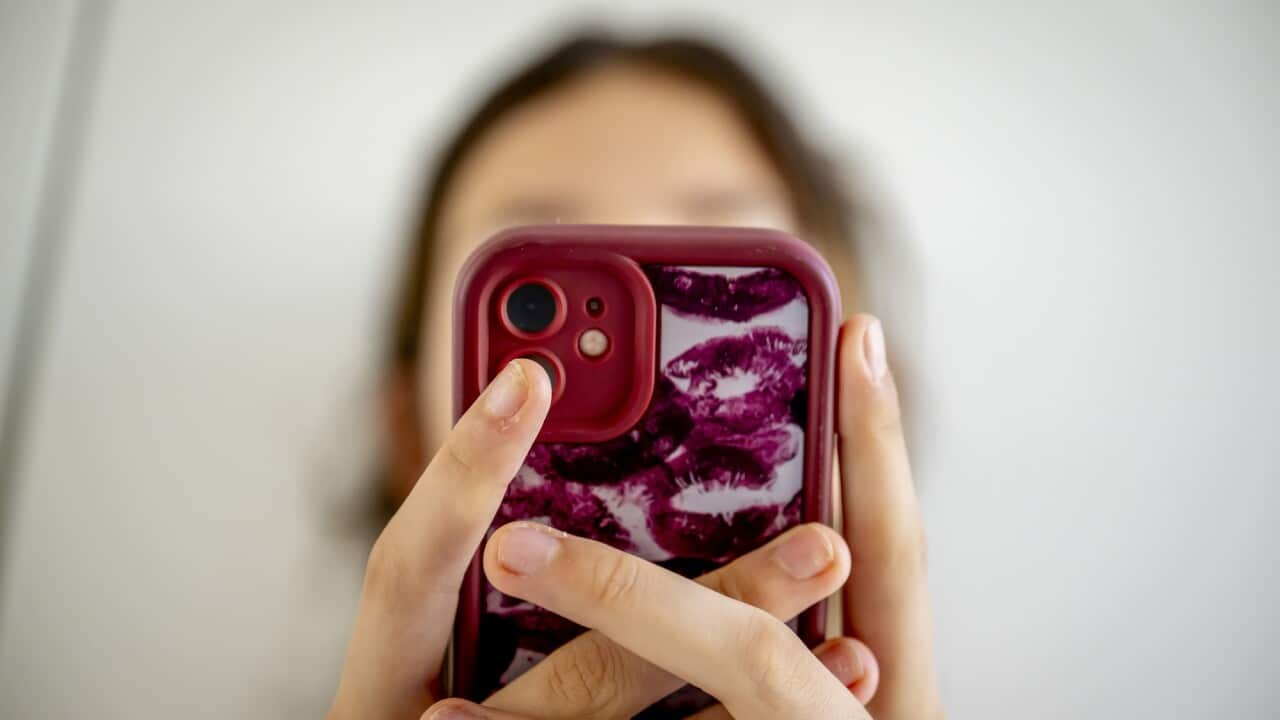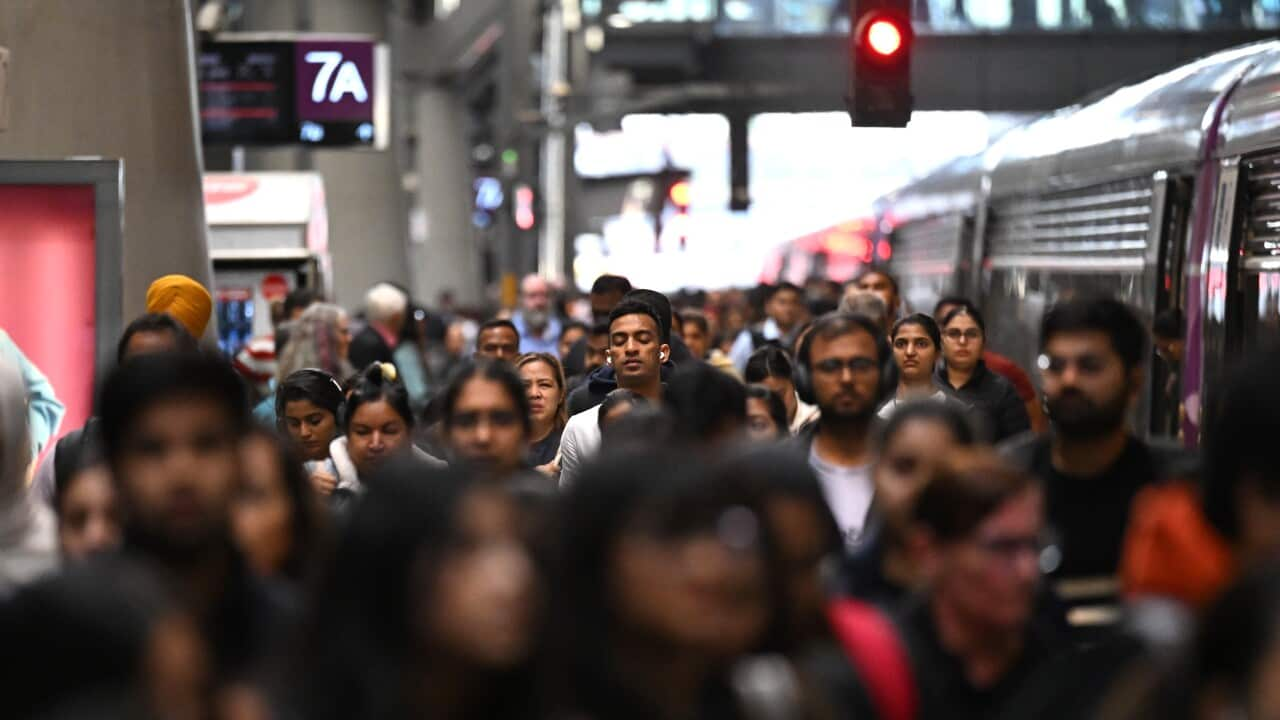TRANSCRIPT:
"I am my phone a lot, like way too much. But the people who use their phone - while they are on the toilet - that is disgusting. And I am one of those people (audience laughter). Sometimes I go to the bathroom and I sit down and I'm like: oh man, I forgot my phone. And I sit there all bored. I wonder what my phone is doing?"
That's US stand-up comedian Anjelah Johnson-Reyes on Tik Tok, confessing about her phone use while on the toilet.
And it's not only a phone full of germs you should be worried about.
Sitting on the toilet for too long and scrolling through your social media accounts or clearing out your emails can increase your risk of developing haemorrhoids.
Professor Rupert Leong is a gastroenterologist based at Concord Hospital in Sydney.
"The theory is that the pathogenesis (way the condition develops) of this vascular swelling is due to straining. So people that sit on toilets especially those that sit on for extensive periods of time and may not be focused on just defecating. They are distracted doing other things whilst defecating i.e. on smartphones. This activity may be prolonging the defecation process, resulting in excessive straining, which can then increase the pressure of the blood vessels that lead to the vascular swelling; and eventually rupture of the vessels that lead to bleeding."
Haemorrhoids is one of the most common anorectal health conditions in Australia.
Flinders University Emeritus Professor Graeme Young is a gastroenterologist.
He says there are number of clear signs of a haemorrhoid.
"Haemorrhoids are in the beginning internal and small. It's only in the modern day TV and news that we would be discussing this sort of detail isn't it? It's only when they start to bulge down a bit through the anus that they become apparent and you can feel uncomfortable in that area. And usually when you're wiping yourself after passing a bowel action you will feel something is not right. You'll even feel haemorrhoids and if they get really big and bulge well yes they're big and bulging and they feel like a couple of grapes in there. You will know if you've got haemorrhoids either because of the physical presence or the suggestion they are there because of the bleeding."
A new US study published in peer-reviewed PLOS ONE journal surveyed 125 adults, aged 45 and older, who were having a colonoscopy at a hospital in Boston (Beth Israel Deaconess Medical Center).
The were asked how often they used their phones while on the toilet - and for how long.
The survey found 66 per cent of all participants used smartphones while on the toilet, with that group spending more time - over five minutes - on the toilet than non-phone toilet users.
Checking the news and using social media were the most common smartphone toilet activities.
The researchers suggest that smartphone use may inadvertently prolong toilet time, potentially increasing pressure in anal tissues, which may then lead to haemorrhoids.
Professor Young says the focus should be on being efficient and strain-free in your bowel movements.
"For people who have a difficult bowel habit in terms of initiating the bowel action, the chances are they are going to be sitting longer on the toilet and straining. What It really boils down to is it's not a good idea to be sitting on the toilet for ages; waiting and hoping for something to happen, and especially straining to achieve that. If you go to the toilet and nothing is happening fairly quickly, you really need to get up and leave it; and come back to it later on."
The pain and inflammation from haemorrhoids can often be easily treated with over-the-counter medications from the pharmacy.
For more severe cases, your doctor may prescribe a corticosteroid cream.
Less often, a surgical procedure might be needed.
Along with time spent on the toilet, other commonly believed haemorrhoid risk factors, include: low fibre intake, straining, constipation, age, sex differences and pregnancy.
"If there is a real problem of constipation - and by constipation we mean not going to the toilet often enough - then you really need to get the constipation dealt with by dietary fibre; and discussion with the doctor if that doesn't work. So I'm not sure that it's to do with reading the phones (scrolling on the phone). I think people are reading the phones cause they're sitting there waiting for something to happen and what are they going to do? So it's an interesting study, but I think it's more about sitting on the toilet for too long than it is about scrolling down the phone."
How are haemorrhoids diagnosed?
Experts say you should firstly visit your general practitioner who will ask you about your symptoms and will examine your anal passage to look for any swollen blood vessels.
Dr Leong says the GP visit could also be useful in ruling out more serious conditions, including bowel cancer.
"The symptoms of haemorrhoids is non-specific so passage of red blood can be something as benign as a haemorrhoid or it can be something more sinister that includes bowel cancer. So anyone who has got bleeding in the bowel should present to the general practitioner who would perform an external examination. Just by looking can help to confirm haemorrhoids however somebody who has not had sufficient investigations they should have a colonoscopy. So I'm talking about someone who hasn't had a colonoscopy before or now getting in the age group where bowel cancer can be common. Then they should present to a gastroenterologist who can then perform a colonoscopy which is a fixable telescope that goes up the rectum into the bowel to have a good view on the inside. I think that's the true way to exclude something sinister."
Dr Kate MacKrill is gastroenterology psychologist at Middlemore Hospital, and a lecturer at the University of Auckland.
She told the Australian Science Media Centre that smartphone use on the toilet might be disrupting gut-brain communication.
She says the human digestive system is controlled by what's called the enteric nervous system - a neural network within the gastrointestinal tract, which is often described as the body’s second brain.
Dr MacKrill says sitting on the toilet for longer than you need to might start to change the signals the bowel sends, making the bowel unsure whether it has completely evacuated, leading to abdominal pain, actual constipation, discomfort, and an even longer time sitting on the toilet.













